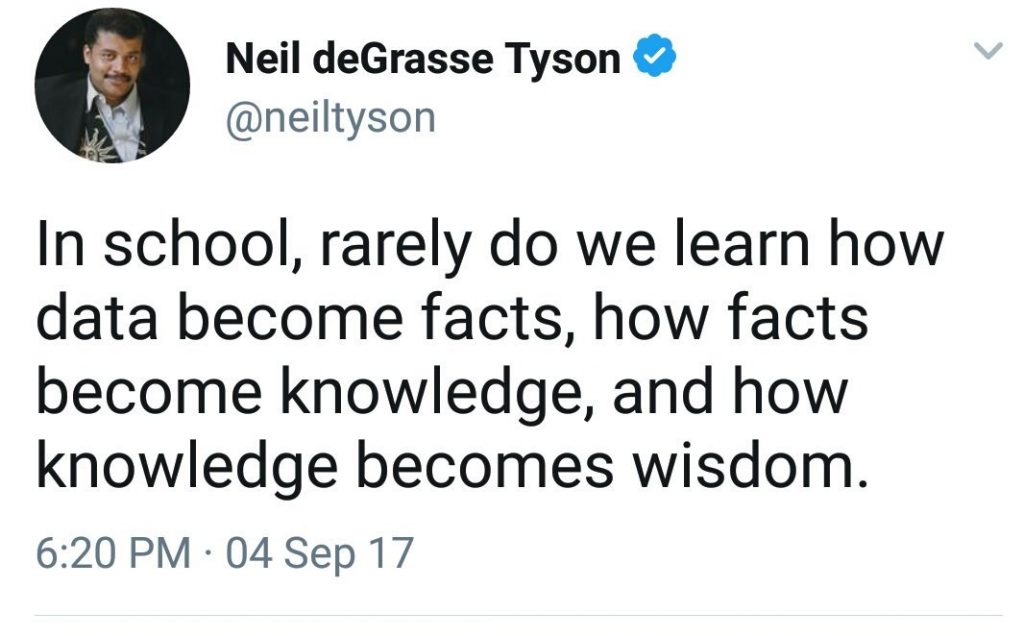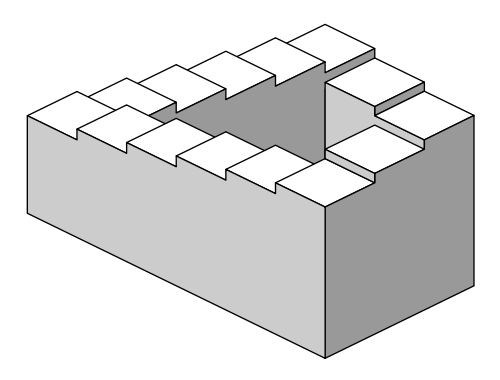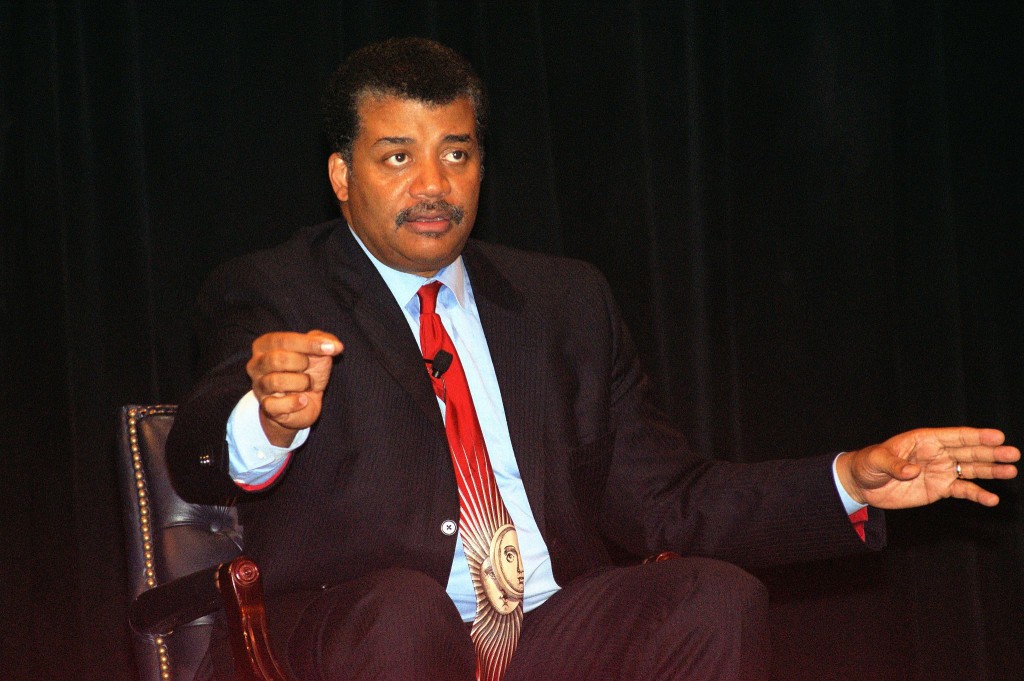
Astrophysicist Neil deGrasse Tyson has once again irked humanities scholars. In 2014, he had declared philosophy a “useless” enterprise (a stance his colleague Bill Nye once held and has since revised). This time Tyson drew backlash for what he didn’t say.
The public intellectual tweeted about the lack of educational enterprises helping students discern the construction of “facts” and “data” in an age of “fake news.” Tyson has long been an advocate of meta-cognitive pedagogy. But the tweet’s concise pronouncement suggested that no one is doing that work. Continue reading “Figuratively the Humanities”



 When discussions of identification and labels note the complexity of labels and complicate the “strong cultural associations” that such labels often convey, I feel like cheering. So I was excited when my brother sent me a link to a nuanced NPR blogpost,
When discussions of identification and labels note the complexity of labels and complicate the “strong cultural associations” that such labels often convey, I feel like cheering. So I was excited when my brother sent me a link to a nuanced NPR blogpost,